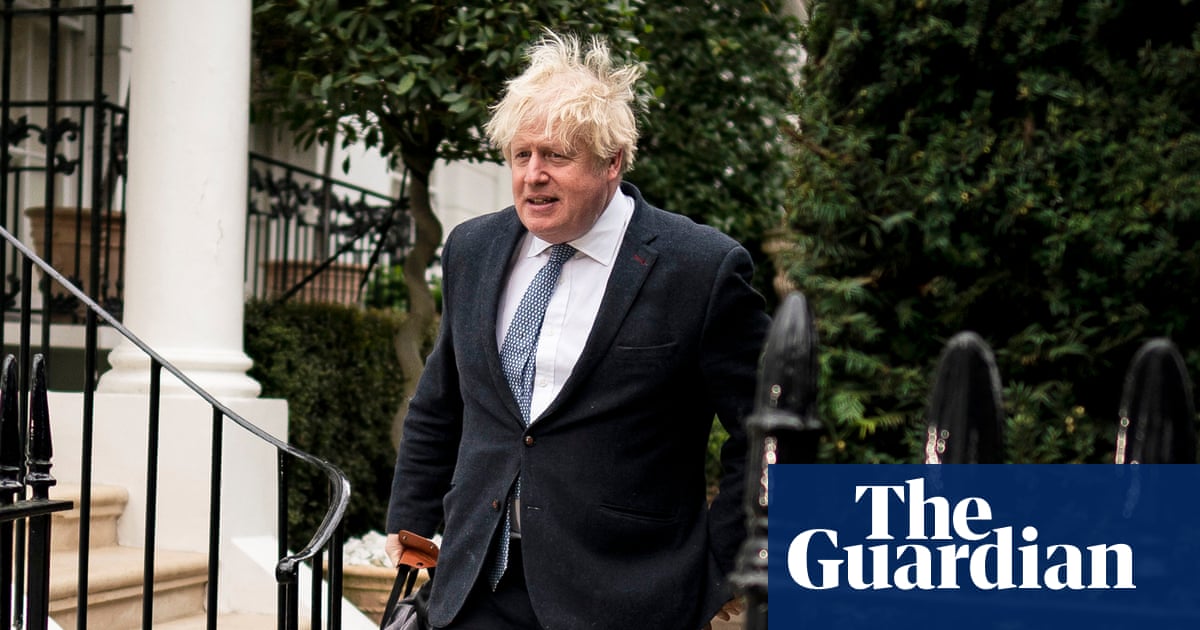
Petrol heading for £2 a litre. A £100 bill to fill the average family car with fuel. A warning from the west’s leading thinktank that only Russia of the world’s 20 leading economies will have weaker growth than the UK next year.
Boris Johnson might have hoped for easier weeks to begin his political fightback. A pickup in the economy is vital if the prime minister is to cling on to his job after 148 of his MPs said they lacked confidence in him. Things are not going to get any easier for some time to come.
Speaking in Lancashire earlier this week, the prime minister said voters could be “confident that things will get better, that we will emerge from this a strong country with a healthy economy”.
By “this”, Johnson meant a cost of living crisis that has put paid to hopes of a speedy recovery from the pandemic, a crisis that pushed state borrowing to levels never seen before in peacetime, and taxes as a share of national output to their highest since the 1940s.
Russia’s invasion of Ukraine has meant the outlook has deteriorated over the past three months and the message from Rishi Sunak to his fellow cabinet ministers is that Britain faces challenging times. It will be next year before the economy’s prospects show signs of improving and the coming months look particularly difficult.
Rising petrol prices will make the cost of living crisis worse. The squeeze on living standards will dampen consumer spending at a time when business confidence is weak. A summer of stagflation looms and that, according to some analysts, means the threat to Johnson has not gone away.
Kallum Pickering, a senior economist at Berenberg, said: “The risk of a worsening economy over the summer, as well as bad results in upcoming byelections such as in West Yorkshire and Devon on 23 June, could yet swing the pendulum against Johnson. Unless he stages a dramatic improvement in the polls in coming months, it is likely that Johnson will face renewed challenges to his leadership.”
For some Tory MPs, the way for Johnson to stage a comeback is obvious: cut taxes. They blame at least part of the government’s unpopularity on the decision to break a 2019 election pledge by increasing national insurance contributions to pay for higher spending on the NHS and social care.
“The overall burden of taxation is now very high – and sooner or later, and I would much rather it was sooner than later, that burden must come down,” Johnson said this week. “You can’t spend your way out of inflation, and you can’t tax your way into growth.”
Tax cuts are coming, but not yet. The chancellor is wary of massive giveaways at a time when his room for manoeuvre is being eroded by rising inflation and higher interest rates. The amount workers can earn without paying national insurance is being raised from £9,880 to £12,570 on 1 July but no further announcements are planned before the autumn budget.
Samuel Tombs, the chief UK economist at Pantheon Macro, said it was “hardly surprising” the prime minister was contemplating lower taxes but said the scope was limited unless the Treasury was prepared to break its self-imposed fiscal rules. These rules set targets for balancing day-to-day government spending with tax receipts and reducing debt as a share of GDP in three years’ time. “Tax cuts, however, would have to be very large to alter materially the economic outlook,” Tombs said, adding the government would get “more bang for the buck” by increasing welfare payments for low-income households.
Meanwhile, Labour thinks its message of “tax fairly, spend wisely, grow the economy” is getting through to voters. Rachel Reeves, the shadow chancellor, saw Sunak’s belated U-turn on a windfall tax as a big win for the opposition, which during the pandemic often struggled to get a hearing from the public. It will be a concern for the Conservatives that Labour has closed the poll gap on the best party to manage the economy, and that concern is likely to grow as the months tick down towards the next election.
For now, though, the prime minister will be able to limp on, in part because there is no obvious frontrunner to replace him. Nor is there an easy policy lever that a new occupant of 10 Downing Street could pull. When Margaret Thatcher was toppled in 1990, her successor John Major was able to ditch the unpopular poll tax. Theresa May’s failure to end the Brexit logjam resulted in Johnson becoming PM in 2019.
This time, unhappiness with the prime minister has more to do with character and fitness for office than policy. Putative challengers such as Jeremy Hunt are marketing themselves as a post-Partygate clean pair of hands rather than offering a totemic policy shift.
Adam Cole, the chief currency strategist at RBC Capital Markets, said even if Johnson went it was not clear there would be a significant change of direction. “When Sunak was runaway favourite to succeed Johnson, it would have been reasonable to expect a shift toward fiscal orthodoxy, but that is no longer the case.”
In the absence of immediate tax cuts, the prime minister began the long, hard struggle to dig himself out of a political hole with a (renewed) commitment to extend the right to buy to housing association tenants and a pledge to speed up economic growth through supply-side reforms.
But these measures will take time to work and Johnson is in need of rapid results. History suggests he is right that things will eventually get better. History also suggests that he will be gone before they do.












